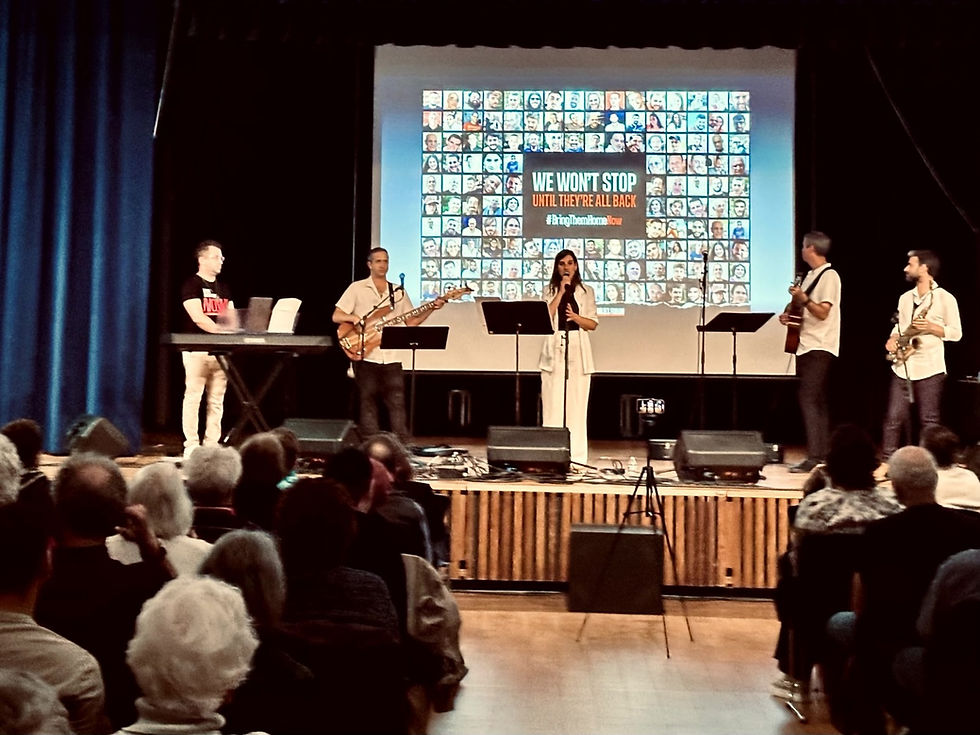Dror Israel releases genocide poetry anthology The Voice of Thy Brother’s Blood
- Eran Shapiro
- Mar 6, 2022
- 2 min read
Launch event at Tel Aviv’s Rabin Center draws hundreds in person and online
As a part of Dror Israel’s work on Holocaust remembrance and genocide education, the Dror Israel publishing house has released a new anthology of songs and poems about the Holocaust and other genocides around the world entitled The Voice of Thy Brother’s Blood.
Many of these first-person testimonial poems of the loss and suffering caused by genocides around the world have only been available in their original languages until now. During last week’s launch event, poems and songs from the new book were performed. Collected from multiple perspectives, these pieces give the listener a direct line to the pain and loss that has been experienced all over the world, from Poland to Armenia to Darfur.
With the events in Ukraine in the back of everyone’s mind, these pieces about loss and devastation felt even more significant.
Mr. Baraka, a refugee from Sudan currently living in Israel, spoke beautifully about his powerful story, the community of refugees in Tel Aviv, and the many devastating and life-changing experiences he had by the time he was only 9 years old.
Below is a recording of last week’s book launch event. Please join us in commemorating and celebrating these artists, their work, and their bravery in telling their stories.
The book can be purchased here:
https://drorlanefesh.org.il/catalog/am-olam/the-voice-of-thy-brothers-blood/
More details about the book:
The poetry anthology The Voice of Thy Brother’s Blood delves into the phenomenon of humanity's self-destruction. The featured poems were chosen to represent different peoples and cultures that perished in acts of genocide and the consequences of genocide on the culture, language and identity of these peoples, in the hopes of conveying the personal perspective of the victims of genocide.
The first volume is dedicated to the Holocaust, featuring Itzhak Katzenelson’s The Song of The Murdered Jewish People, which spans over 15 cantos, 15 stanzas each. Katzenelson details first-hand the process of the extermination of the Jewish people during the Holocaust, along with the account of the armed and spiritual resistance of the Dror movement during the Warsaw Ghetto Uprising, in which he himself took part. Katzenelson wrote the poem between October 1943 and January 1944 while imprisoned in the Vittel detention camp in France. Katzenelson then assumes the role of the last Jewish poet, the last survivor to tell the tale of his murdered kin, as the poem takes the form of lamentation to and for the Jewish people.
The second volume encompasses more than 100 poems, never before translated or published in Hebrew, encompassing 11 different cases of ethnic, religious, and ideological genocides that took place around the world throughout the 20th and 21st centuries. The volume consists of 13 chapters: 11 chapters devoted to one case of genocide each, featuring a factual introduction and selected works; the remaining two chapters revolve around selected themes: The Human Spirit – poems about rebellion and righteousness; and Monument – poems about remembrance and denial. Short biographies of the poets participating in the anthology appear at the end of the book.
In light of the saying “never again,” The Voice of Thy Brother’s Blood is the end product of the volunteer work done by the Combat Genocide Association, a non-profit organization founded by Dror Israel.



Comments